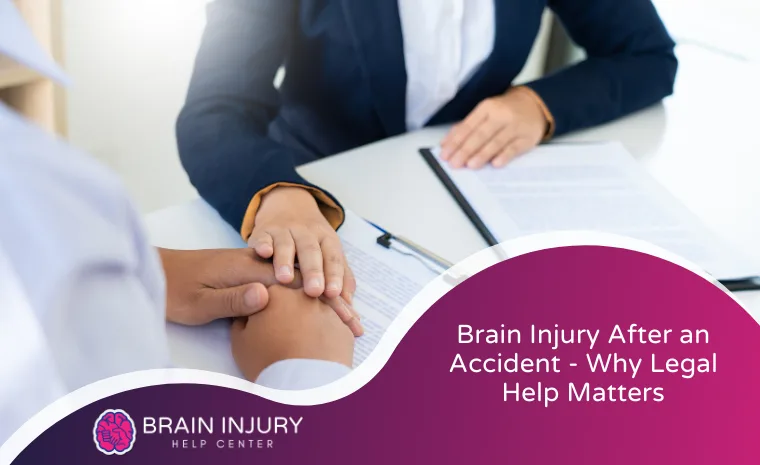Suffering a traumatic brain injury as a result of an accident can be a life-altering experience. Whether it’s a traumatic brain injury (TBI) from a motor vehicle accident, a concussion from a slip and fall incident, or any other form of head trauma, the consequences can be devastating. Apart from the physical pain and emotional distress, individuals with head injuries often face significant financial burdens due to medical bills, lost wages, and ongoing rehabilitation costs.
In today’s blog, we will highlight the importance of seeking legal help after sustaining severe head injuries in an accident. From navigating complex insurance claims to holding responsible parties accountable, a knowledgeable brain injury lawyer can make a profound difference in the lives of brain injury survivors and their families.
The Challenge of Living with Brain Injuries
Brain injuries present unique challenges that stem from the complex nature of brain function and the wide-ranging impact that injuries to this vital organ can have on an individual’s life. Here are some key reasons why brain injuries necessitate comprehensive support:
Physical Impairments
Brain injuries and blood clots can result in a range of physical impairments, including motor deficits, balance issues, and difficulties with coordination. These physical challenges may require ongoing rehabilitation, physical therapy, and emergency medical interventions to improve function and mobility.
Cognitive Deficits
Brain injuries affect the blood vessels and can impair cognitive functions for a long period, such as memory, attention, concentration, slurred speech, and problem-solving abilities. Individuals may struggle with processing information, making decisions, and performing everyday tasks. Cognitive rehabilitation and specialized therapies are often necessary to help individuals regain cognitive function and adapt to any permanent changes.
Emotional and Behavioral Changes
Severe injuries can lead to emotional and behavioral changes, including mood swings, irritability, depression, anxiety, and impulsivity. These changes can significantly impact an individual’s relationships, work, and overall quality of life. Mental health support, counseling, and behavioral interventions are essential components of comprehensive care for brain injury survivors.
Financial Strain
The financial implications of a brain injury can be substantial, with medical expenses, rehabilitation costs, and lost wages potentially leading to financial hardship. Securing compensation through legal avenues, accessing disability benefits, and financial planning are crucial aspects of comprehensive support for brain injury survivors and their families.
Given these challenges, comprehensive support is essential to address the diverse needs of survivors in their daily lives. By addressing these challenges holistically, brain injury survivors can optimize their chances of achieving meaningful recovery and rebuilding their lives after such a traumatic event.

The Importance of Legal Assistance in Case of Brain Injury
Legal assistance plays a crucial role in advocating for brain injury victims and ensuring they receive the support and compensation they deserve. Here’s how legal representation can benefit brain injury victims:
- Navigating Complex Legal Processes: Dealing with legal matters can be overwhelming, especially for individuals who are coping with the physical and emotional challenges of this type of injury. A skilled attorney can guide victims through the complexities of the legal system, including filing claims, gathering evidence, negotiating with insurance companies, and representing them in court if necessary.
- Identifying Liability: In many cases, brain injuries occur as a result of negligence or wrongdoing on the part of another party, such as a negligent driver, property owner, or employer. Legal professionals have the expertise to investigate the circumstances surrounding the injury, identify liable parties, and hold them accountable for their actions.
- Maximizing Compensation: Insurance companies may attempt to minimize the compensation offered to victims or deny valid claims altogether. An attorney can advocate for victims’ rights and work to maximize the compensation they receive. This may involve negotiating settlements, presenting evidence of damages, and litigating on behalf of the victim to ensure they receive fair and just compensation for their losses.
- Accessing Specialized Medical Care: Legal professionals specializing in brain injury cases often have access to a network of medical experts, vocational rehabilitation specialists, and other professionals who can provide valuable insights and testimony to support the victim’s case. These experts can assess the extent of the injury and provide recommendations for appropriate treatment, like magnetic resonance imaging.
- Providing Emotional Support and Advocacy: A compassionate and supportive attorney can offer guidance, empathy, and reassurance for your mental status. By advocating for the victim’s rights and best interests, the attorney can help alleviate some of the stress in their daily activities and uncertainty associated with pursuing a legal claim.
A brain injury lawyer plays a critical role in advocating for brain damage victims by navigating complex legal processes, identifying liability, maximizing compensation, accessing specialized resources, and providing emotional support and advocacy. By enlisting the help of the Brain Injury Help Center, traumatic brain injury victims can better navigate a traumatic encephalopathy and work towards rebuilding their lives with the support and resources they need.









